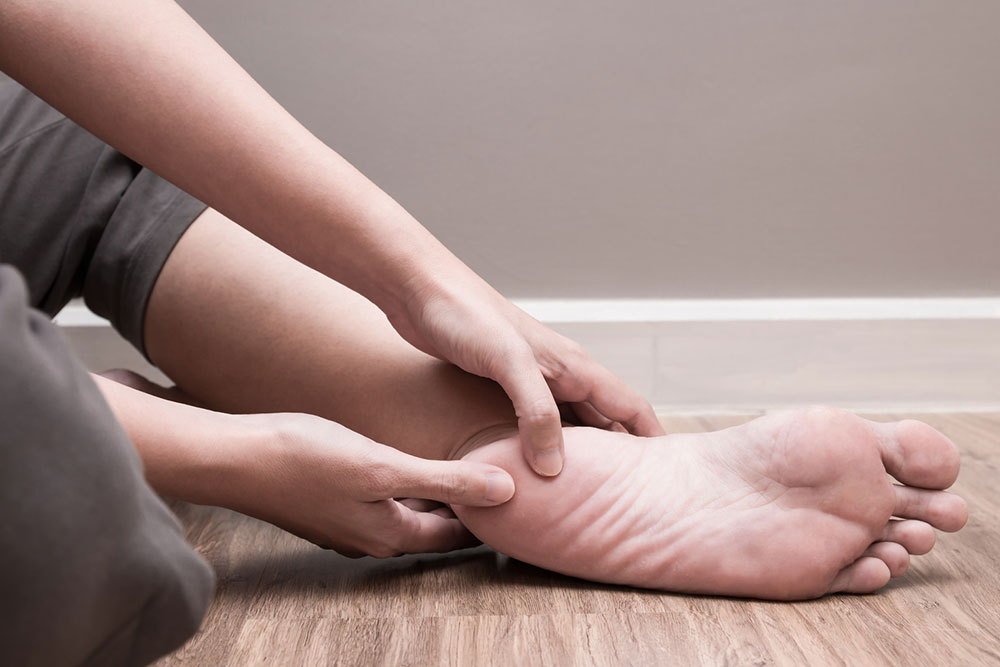Comprehensive Guide to Recognizing and Relieving Burning Sensation in Feet
Discover a comprehensive guide on diagnosing, treating, and relieving burning sensations in the feet. Learn about causes like diabetic neuropathy, infections, and nutritional deficiencies, alongside effective medical treatments and simple home remedies. Whether temporary discomfort or persistent symptoms, this article offers practical advice to enhance foot health and soothe nerve pain naturally. Address underlying issues with modern medicine and traditional therapies, ensuring a holistic approach to foot wellness. Suitable for anyone experiencing ongoing burning in their feet, seeking relief and better quality of life.

Comprehensive Guide to Recognizing and Relieving Burning Sensation in Feet
Persistent burning sensations in the feet can be distressing and disruptive to daily life. Such symptoms often indicate underlying health conditions that require proper diagnosis and targeted treatment. Understanding the root causes, exploring effective treatment options, and utilizing home remedies can significantly improve comfort and quality of life. This comprehensive guide delves into the various factors that can cause burning feet, discusses modern and traditional treatment strategies, and offers practical home remedies to alleviate discomfort.
What Are the Common Causes of Burning Feet?
The sensation of burning in the feet can be associated with various health issues, ranging from nerve damage to infections and nutritional deficiencies. Recognizing the cause is vital for effective management and alleviation of symptoms.
Diabetic Neuropathy: One of the most prevalent causes of burning feet is diabetic neuropathy, a complication of long-term diabetes. Elevated blood sugar levels can damage peripheral nerves, especially those in the feet and legs, leading to abnormal nerve signals that produce burning, tingling, and numbness even when no injury has occurred. Managing blood glucose levels meticulously can prevent or slow the progression of nerve damage.
Alcohol-Induced Nerve Damage: Chronic alcohol consumption can lead to a condition called alcoholic neuropathy. Alcohol toxicity damages nerves throughout the body, and the feet are particularly vulnerable. Over time, this damage manifests as burning, stabbing pains, and numbness. Abstaining from alcohol and seeking medical treatment can help manage symptoms.
Erythromelalgia — A Rare Cause: Erythromelalgia is a rare but serious condition characterized by episodes of intense burning pain, redness, and warmth in the extremities, especially the feet. Its exact cause remains unknown, but it can be triggered or worsened by activity or stress. Its episodic nature requires specific diagnosis and management strategies.
Infections Affecting the Feet: Infections such as athlete’s foot, shingles, Lyme disease, and HIV can cause localized burning sensations. For instance, shingles, caused by the reactivation of the chickenpox virus, commonly presents with burning pain, blistering, and skin discomfort. Proper treatment of these infections is essential to prevent complications.
Kidney Problems and Toxin Buildup: When kidney function is impaired, toxins can build up in the body, leading to uremic neuropathy, which includes burning, tingling, and numbness, especially in the feet. Dialysis and other kidney treatments are essential in managing toxin levels and preventing nerve damage.
Thyroid Disorders — Hypothyroidism: An underactive thyroid causes various metabolic disturbances, including fluid retention and swelling in the feet, which can contribute to burning sensations. Correcting thyroid hormone levels through medication often alleviates symptoms.
Nutritional Deficiencies: Deficiencies in vitamin B complex, especially B12, can result in nerve damage manifesting as burning, tingling, and weakness. Supplementing deficiencies and maintaining a balanced diet are critical preventive strategies.
Effective Treatment Options for Burning Feet
Successfully managing burning sensation depends upon identifying and treating the underlying cause. Medical intervention plays a crucial role in many cases.
For diabetic neuropathy, stringent blood sugar control and medications to reduce nerve pain are primary. Kidney issues may require dialysis or medications to reduce toxin buildup, whereas nutritional deficiencies are addressed with supplements and dietary adjustments. For infections like athlete’s foot or shingles, appropriate antifungal or antiviral medications are necessary.
Over-the-counter pain relievers, such as NSAIDs, may offer temporary relief; however, clinicians should evaluate their use to avoid interactions or side effects. In severe cases, advanced therapies like electrical nerve stimulation, laser therapy, or acupuncture have demonstrated promising results in reducing nerve pain and restoring function.
Traditional and Alternative Therapies
Many patients find relief through complementary therapies, which include acupuncture, magnetic therapy, and herbal remedies. These approaches may help modulate nerve activity and improve circulation, resulting in reduced burning sensations.
Accessible Home Remedies to Ease Burning Feet
While professional treatment is essential for underlying conditions, simple lifestyle modifications and natural remedies can be beneficial for managing everyday discomfort.
Cold Water Soaks: Periodically soaking feet in cold water can reduce inflammation and numb nerve endings, providing temporary relief. It’s advisable to avoid cold water if affected by erythromelalgia, as it can worsen symptoms.
Epsom Salt Baths: Dissolving Epsom salt in warm water for soaking can relax muscles and soothe nerve endings. Aim for 15-minute soaks three times a week; individuals with diabetes or hypertension should consult their healthcare provider before commencing this remedy.
Apple Cider Vinegar: Known for balancing pH levels and reducing inflammation, adding a small amount of ACV to foot soaks or drinking diluted ACV may alleviate burning sensations.
Additional supplementary methods include:
Herbal Infusions: Herbs like thyme and hawthorn have vasodilatory properties, helping improve circulation. Alternating warm and cold water soaks infused with these herbs can promote blood flow and reduce burning sensations.
Ginger: Ginger possesses anti-inflammatory qualities. Drinking ginger tea or applying topical ginger oil can help reduce nerve inflammation and improve circulation.
Bitter Gourd: Applying paste made from fresh bitter gourd leaves can soothe nerve discomfort. Caution must be exercised to ensure no allergic reactions.
Turmeric: Incorporating turmeric into your diet via infused milk or applying turmeric paste directly to the affected areas leverages its powerful anti-inflammatory effects.
Physical Activity & Massage: Gentle walking, stretching, or jogging enhances circulation to the lower extremities. Regular message with warm oils relaxes muscles and can decrease nerve pain. Be attentive to your body; rest if activity exacerbates symptoms.
In conclusion, managing burning sensations in the feet requires an integrated approach that combines medical diagnosis, targeted treatments, and lifestyle modifications. Persistent or worsening symptoms should always prompt consultation with healthcare professionals to identify underlying conditions and receive appropriate care. With proper management, relief and improved quality of life are attainable.





